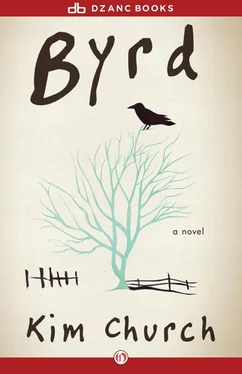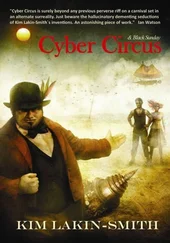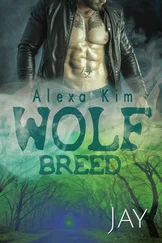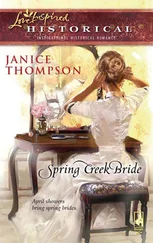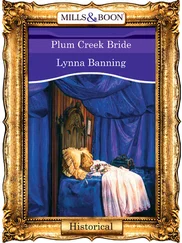“I want to know all your secrets,” she says.
She falls in love with the sound of the ocean, a constant whoosh behind all the other sounds.
She falls in love with the sun, which is different here, expansive and white, bleaching everything, making even the ugliest buildings gleam like laundry on a line.
She falls in love with the unreality of the place. On Hollywood Boulevard they have to stop for a man in chaps crossing the street with his bull. On the Santa Monica pier, a man at the bar offers to buy her a drink.
“I’m Kin,” he says.
“No, you’re not,” she says. “I know you. You’re Scotty from General Hospital.”
She falls in love with Roland’s friends. One night they all go to dinner in a French café Pete knows, Maison Gerard (“the House of Jerry,” Roland translates), with red walls and posters advertising French soap and cigarettes, and a French lounge singer, Serge Gainsbourg, on the sound system. Their waiter is an actor studying to play a French waiter. His face is flat and round as an omelet pan. While they wait for their meal, Pete spreads potted cheese onto rounds of French bread and deals the bread like cards. “So,” he says to Addie, “wasn’t the Lost Colony in North Carolina?”
“That’s right. The first English settlement in America. By the time the new governor got there, the whole colony was gone.”
Roland says, “Remember how in school they used to tell us, ‘And no one ever knew what became of the settlers’? It was never any fucking mystery to me.” He tomahawk-chops the table with his hand.
“That’s just what they wanted you to think,” Pete says. “Always blame the Indians.”
“What’s that Opie Taylor movie,” Golita says, “where all the old people get in a boat and go to another planet and live forever?”
“That’s what happened,” Pete says. “They’re probably on Mars right now, kicking up red dust.”
“With silver buckles on their shoes,” Addie says.
“Wearing top hats,” Pete says. “Trying to grow maize, but it won’t grow. ‘We put fish in the ground the way the Indians showed us and still it won’t grow .’”
Driving is her favorite drug. She becomes addicted to the motion, the forever-changing view. She loves watching Roland drive, how he stretches out his arm and drapes his hand over the steering wheel, every part of him long and loose. Whenever they come to a 7-Eleven he stops for pink wine and lottery tickets.
Late one night they drive up the coast to Zuma Beach with the windows rolled down. Salt air eddies in around them. Nina Simone purrs on the tape deck, “Since I Fell for You.” Strings of Christmas lights glitter on wooden fences along the road. Beyond is the big dark ocean.
“You’re shaking,” Roland says. He pulls over and takes off his jacket, wraps it around her.
“Dance with me,” she says, turning up the volume.
They get out and he pulls her close and they slow-dance to Nina Simone right there on the edge of Pacific Coast Highway, a twinkling fence and an ocean on one side of them and the threat of traffic on the other.
When the song is over, they get back in the van and drive some more.
“I’m sure he’s a sweet piece of ass,” Golita says to Addie. “He’s also a total fuckup. You know that, right?” The two of them are in Golita’s kitchen. Pete and Roland are in the living room with the new Michael Jackson album turned up. “I mean, I love the man, and Pete’s fucking in love with him. But he’s a mess.”
“How?”
“Oh, you know. He’s always late. When it’s his turn to drive we always get docked at work. He’s the only person I know that ever runs out of gas. He’s always running out of something. Money, coke. He loses stuff. Burns stuff. See my floor? I mean the landlord’s floor that me and Pete will have to pay for.” She points out a patch of brown blisters at the foot of the stove. “One night we left him alone to make popcorn and he plugged in the popper and set it on the stove and turned the stove on high.”
“When he was young,” Addie says, “he hit his head.”
“In the swimming pool,” Golita says. “Everybody’s heard that story.”
Pete knows a drummer in a bar band and arranges for Roland to sit in so that Addie can see him play before she leaves town. It’s a nicer-than-average Venice bar, with tables and chairs and a tile dance floor. The band opens its first set with love songs: “Cold Love,” “Part Time Love,” “Hoodoo Love,” “I Stole Some Love.” Roland sits at the back of the stage, cradling his unplugged guitar, tapping his foot, fingering silent chords.
“Why isn’t he playing?” Addie says.
“This isn’t his gig,” Golita says.
“He will,” Pete says.
The band plays “I Feel a Sin Comin’ On.” Roland is stranded in the shadows.
“So what’s going on with you and Roll?” Pete asks Addie. “You like him?”
“Sure. We’re old friends.” Addie takes a swig of beer, sets down her mug. “When’s somebody going to tell me about the woman?”
Pete and Golita look at each other.
“I’ve seen her things in Roland’s apartment.”
“Elle,” Golita says.
“Don’t worry about Elle,” Pete says. “She’s just some chick who followed Roll home one night. You know Roll. What’s he gonna do.”
“He needed help with rent,” Golita says.
“Where is she now?”
“Gone,” Pete says. “Moved out. Don’t worry. It’s a good thing. Tell her, babe. You ever seen Roll this good?”
Golita shrugs.
“Look,” Pete says and touches Addie’s arm, “you want to step outside? Get some air?”
She gets up with him. They leave Golita to save the table.
The sand parking lot behind the bar backs onto a canal. Moonlight shivers on the water. “Like the real Venice,” Addie says, though she has never been to Italy. There’s a mattress on the bank, and a tire, and a broken shopping cart. Pete takes a brown bottle out of his pocket, unscrews the cap, which is also a tiny spoon, and offers it to Addie. He opens his jacket to shelter her as she lifts the spoon to each nostril.
“My doll’s tea set had spoons like this,” she says.
“You have a tea set?”
“My doll did. When I was young. I don’t know what happened to it.”
Behind the dull thudding of the band she can hear the faint sound of water lapping. This is what she loves about coke, how you notice everything. The cool, perfect air. How close Pete is standing. The fine red stubble on his cheeks, how it catches the light. She cups her hands around his face. He leans closer, until they are head to head. He puts his mouth on hers. She tastes salt, and pulls away.
“Sorry, I wasn’t—”
“Sorry.”
“I didn’t mean—”
“Me either.”
She wonders which of them is sorrier. Which of them loves Roland more.
When they go back in, he’s plugged in and standing with the band. “You missed him on ‘Dark End of the Street,’” Golita says. Now the band’s playing “After Midnight,” a slowed-down version, more JJ Cale than Clapton. Two verses in, the singer nods at Roland, and Roland steps up. His shirtsleeves are rolled back. This is his moment, and Addie wonders if he’ll break out, burn it up, play some scorching lead, something truly incendiary, even though incendiary isn’t what the song calls for. The song is about what’s going to happen after midnight. In the song, midnight isn’t here yet.
Roland knows. He holds back, plays it spare. Long, slow notes with plenty of space in between. It sounds like the front end of a thunderstorm, when the first rain begins to hit the pavement: those slow, fat, hard drops just before the whole sky comes crashing down.
Читать дальше
